I am not an educational professional and before my kids started in a Montessori School, I never heard of this teaching method before. I went to a very traditional and strict school at a different place, and though I do not look back in anger, I’d rather not look back at all. So when the time came, it was quite an endeavor to find a place for our toddler.

Environmental Education in Montessori
by Sovidias
Responsibility and respect provide a sound foundation for generating environmental awareness and understanding the importance of sustainability in any educational system.
On a Quest
After touring many, many a preschools with no success I stumbled across this small school. Our priority was cleanliness and safety, and one would think this should also be a major concern for every preschool. And yet, this was the only place, where we felt comfortable leaving our child. It is a very young school in East Oahu, which just completed its third year. Up to this moment, they love to go there and despite some other attractive opportunities that opened up as they have grown older, they will stay for the time being. With all the “growing pains” that come with any start up also come a certain degree of intimacy and a little bit more parent involvement and dedication, which form a sort of partnership. All that gave me insight into several approaches the Montessori method uses. Some of them I like a lot, some I do not approve one hundred percent – but this goes for any school (one reason I am still member of a home schooling association). At the end of the day it is not so much about the kind of school (be it Montessori, Waldorf, Reggio, etc.), but about the quality and dedication of the teachers and if it is a good fit for your child.
Nature-friendly Approach
Here I would like to talk about one particular aspect I consider extremely important for a child’s well rounded education. Besides teaching caring for each other, called “Grace and Courtesy” lessons, caring for the environment and a healthy relationship to plants and animals is equally important in a Montessori program. Main focus of their curriculum is teaching responsibility and kindness. These characteristics are a perfect match to and prerequisites for building environmental awareness, which is essential to understanding and eventually accomplish sustainability on our planet.
The nature loving concept in the Montessori philosophy becomes also obvious when looking at the classroom materials. There is wooden material instead of plastic whenever possible, wooden floors, natural materials for toys, arts and crafts, etc. – all together giving the class room a warm and inviting feeling. There is also a small garden, which offers the children the possibility of weeding, planting, watering, and harvesting, and a good sized sand box for digging “to the center of the earth”. For interested parents, the “For Small Hands” catalog offers great articles with a whole section of Eco Education and all child sized tools for gardening one can think of.
http://lamoana.hubpages.com/hub/Huayruro-Beans-Poisonous-...
Pouring activities are an important part of the practical life curriculum
 | Montessori Botany Puzzle Cabinet with 3 Puzzles Wooden cabinet with 3 Montessori botany puzzles. Only $54.99 |
 | Montessori Animal Puzzle Cabinet with 5 Puzzles Wooden cabinet with 5 Montessori animal puzzles. Only $75.99 |
 | Toysmith Kid's Big Tool Set # 2299 The Kids Garden Tool Set allows children to "dig" right in! Each handle features a leather loop. Set includes garden rake, leaf rake, spade and hoe. Hardwood handles measure 27.... Only $29.99 |
 | Montessori Madness! A Parent to Parent Argument for Montessori Education We know we need to improve our traditional school system, both public and private. But how? More homework? Better-qualified teachers? Longer school days or school years? More te... |
Other Schools
After not only having toured numerous preschools, but also K-12 schools, it seems that environmental awareness plays a more and more important part of a school curriculum. A growing number of students in private as well as in public schools learn the purpose of a hydroponics garden, work very hands-on and with enthusiasm with worm bins, and learn how to take care of a school garden, from planting the seed to harvesting. Compost bins, rainwater barrels and PV panels seem to become flagships of progress school representatives proudly present on school tours.
A particularly noteworthy program is the 'Āina (the Hawaiian word for Land) program, a farm to school program, which supports environmental education in the schools of Hawaii. Their components include promoting healthy nutrition and local fresh food on the campus, garden-based learning (where and how does food grow), and waste reduction.
You might also like
Collecting Seashells: Types of ShellsA look at some seashells you may see on Florida beaches with photos of my own...
Benefits of Forests for HumansBenefits of rainforests to humans, moderation of climate, temperature, rainfa...
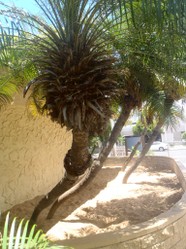

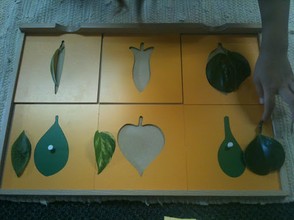
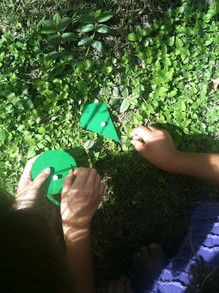
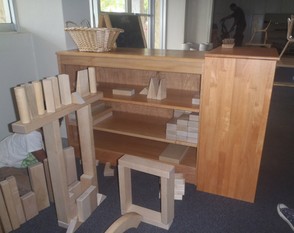


 Festive Meatloafon 07/23/2012
Festive Meatloafon 07/23/2012
 Largest US Marine Protection Areaon 07/15/2012
Largest US Marine Protection Areaon 07/15/2012
 Wild Dolphin Foundation – Experience Spinner Dolphinson 07/06/2012
Wild Dolphin Foundation – Experience Spinner Dolphinson 07/06/2012
 Hawaii Marine Life Encounters, Above and Under Wateron 06/27/2012
Hawaii Marine Life Encounters, Above and Under Wateron 06/27/2012

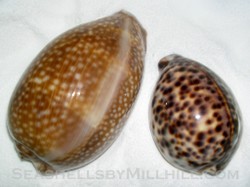
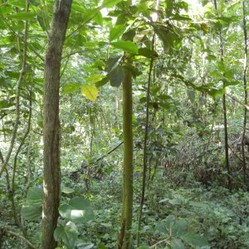
Comments